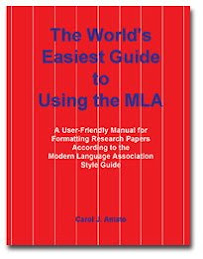by Carol J. Amato
Students make many of the same mistakes over and over that cause otherwise good papers to lose points. Here is a list of some of the main mistakes so that you will know what to avoid to ensure your papers can receive the best grade possible.
1. Follow the instructions your teacher, instructor, or professor has specified. This includes staying within the word or page count.
2. Create a topic (NOT SENTENCE) outline to ensure that your paper has a good flow and that you have covered all the bases.
3. Use the topic headings from your outline to divide the sections of your paper, but delete the Roman numerals.
4. If you find your paper is going over the word or page count because you have too many topics in your outline, revise your outline and cut some of the topics.
5. If your paper is to be written in first person, such as an essay, ensure it is in first person only (“I,” “me,” “my,” “mine,” OR “we,” “us,” “our,” “ours”). If your paper is to be written in third person, ensure it is in third person only (“he,” “she” “his,” “hers,” “him,” ”her,” OR “they,” “them,” “their,” “theirs”). Look carefully at the instructions and outlines in your instructor’s/professor’s syllabus for directions.
Under NO circumstances should there be any instances of second person (“you” or “your”) anywhere in your paper unless you are writing instructions or it is contained within a quotation. Do a search for these words and make sure that you eliminate them.
Note: Watch out for the command form booby-trap; i.e., “Do this. Do that. Read this. Go to that building.” All of these forms are actually second person (“You do this, you do that,” etc.) even though they can be written without using the word “you.”
6. Use the style guide your instructor/professor specifies to create the format (page layout) of your paper. This includes margins, heading styles, page header style, location of page numbers, and formats for citations and references. If a title page and table of contents are required, be sure to include them.
7. Use at least two outside sources to support or refute your material. Check the syllabus to find out how many outside sources you must use.
8. Cite and reference your sources—and do so using the style guide your teacher, instructor, or professor specifies. Pay close attention to the order of the elements, use of capital vs. lower-case letters, punctuation requirements, and format of the authors’ names. Listing your sources in any old format will guarantee loss of points. Including the entire reference in the text is also a no-no.
9. Eliminate all instances of announcements; e.g., “This paper will discuss…. “; “Attempts will be made to define….”; “The purpose of this paper is to….”
Instead of the announcements, just turn the rest of the statement into a complete sentence. For example:
NOT The purpose of this paper is to analyze two different types of political systems: democracy and socialism.
BUT An analysis of democracy and socialism shows that both political systems have positive and negative characteristics.
10. Read your paper aloud to yourself to catch all punctuation, spelling, and grammar errors. Do not rely on spell check and grammar check alone. They are woefully inadequate and will pass over incorrect words that spell other English words (such as “barn” for “born”).
Following these tips will give take your paper a long way in getting a terrific grade.
Welcome!
Writing well is critical not only to your college career but to your future in your professional career. If you are a lower-division student who wants to do the best job possible on your class papers without tearing your hair out, you've come to the right place. This blog will answer your questions and show you user-friendly ways to produce writing that will impress your professors.
Subscribe to:
Post Comments (Atom)



Do not look at a good grade on a college paper as an isolated experience and effort. It is becoming increasingly evident that the employee who is clear in thinking, organized in writing, and able to deal with the mechanics of spelling and punctuation, is a valuable one. No secret that this employee has a better chance of being fast-tracked to promotion than one who fails in the writing aspect of communication. Promise!
ReplyDeleteCarol's comments are very important. In a study done regarding workplace skills sought by all employers, the ability to communicate in writing is at the top of the list.
ReplyDeleteI would also add that logical flow is important. Once youo think you are done, reread the entire paper to check for flow from topic to topic, larger concepts to more detailed issues and that your paper has an introduction and some sort of conclusion.
Many institutions limit access to their online information. Making this information available will be an asset to all.
ReplyDelete